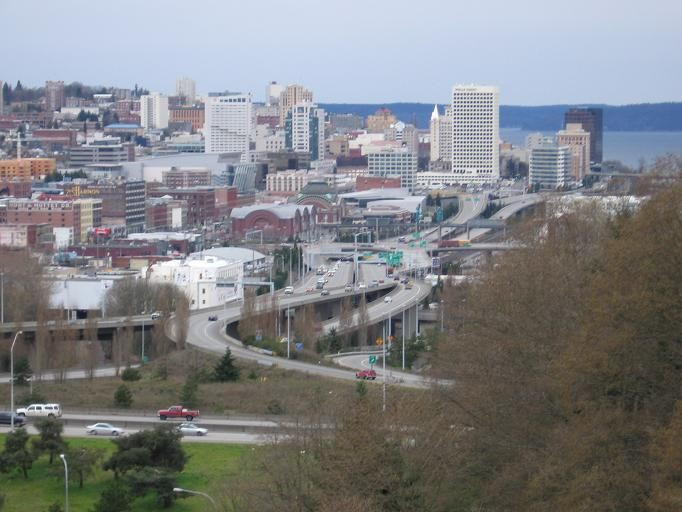Washington Marijuana Store Defies County Pot Sale Ban, ‘The Gallery’ Opens Over Weekend

Customers lined up outside a newly minted retail pot store in Pierce County, Washington, Sunday afternoon to get their hands on some legal weed, despite the shop having opened in a county that outlawed such marijuana retailers last year. The owners of the store, called The Gallery, were the first in Washington to defy such a ban, but said they believe the county would probably look the other way, a testament to the sometimes uncomfortable contrast between state and local marijuana laws.
"We have our state license in hand and follow every rule except for that small county regulation they're not very excited about,” Mike Henery, an owner of “The Gallery,” told KIRO-TV, Seattle. "Our hope is that we will receive not a blessing so much but just indifference.” Henery pointed to the number of medical marijuana dispensaries open in Pierce County, just south of Seattle, that have not faced legal repercussions even though their operations remain barred under county regulations.
Pierce County Executive Pat McCarthy told the Associated Press she could consider taking action against the pot shop. “This just came to our attention a couple of days ago,” she said. “The county executive will consult with the County Council and prosecuting attorney to determine our response.”
Since January 2014, when the state’s new marijuana law went live, at least 40 percent of Washington cities have outlawed marijuana sales within their borders, the Herald of Everett reported in October. As of last year, 41 of the state’s 281 cities and several counties had banned the retailing of pot; 80 others have temporary moratoriums on such pot shops in place, the Herald said.
When Washington residents passed Initiative 502 in November 2012 to legalize, regulate and tax marijuana sales in the state, some state officials said the law left room for individual cities and counties to decide whether they wanted to embrace or reject it. “Although Initiative 502 establishes a licensing and regulatory system for marijuana producers, processors, and retailers in Washington State, it includes no clear indication that it was intended to pre-empt local authority to regulate such businesses,” Brittany Sill of the Washington Association of Cities, a corporation that represents Washington's cities and towns to the state's legislature, said in a news release in January 2014. “We therefore conclude that I-502 left in place the normal powers of local governments to regulate within their jurisdictions.”
Unlike in Colorado, which joined Washington in legalizing recreational marijuana sales in 2012 and whose laws clearly allowed local jurisdictions to outlaw marijuana sales, Washington’s law was much hazier on whether cities could keep pot shops out of their backyards. Contrary to Ferguson’s reading of Initiative 502, the Washington state constitution doesn’t allow local municipalities to ban any activity considered legal under state law, the Huffington Post reported.
Many of the cities that have barred pot shops from opening were waiting to figure out exactly where to put them as strict zoning laws prohibit pot shops from opening within 1,000 feet of sites such as daycare centers, parks and transit centers. "Each one of those cities has different methods and a different direction they’re headed," Sill, of the Washington Association of Cities, told the Huffington Post last summer when the state’s first retail pot shops opened for business. "It's kind of like hitting a pause button while they figure out what they want," she said.
© Copyright IBTimes 2025. All rights reserved.






















